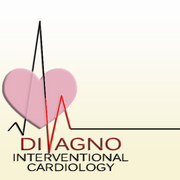What Is Atrial Fibrillation?

If you have atrial fibrillation—or several of your blood relatives do—it’s important to stay on top of cardiac care. Characterized by an irregular heartbeat, AFib in and of itself is not life-threatening. However, because it can increase the risk of serious complications, including heart failure and stroke, it’s important for those who have it to monitor their health closely. Here’s what you should know about identifying and living with AFib.
What Are the Symptoms of Atrial Fibrillation?
Sometimes, atrial fibrillation doesn't manifest any symptoms. This is why undergoing routine physical exams is so important. When AFib does cause symptoms, they typically include chest pain, shortness of breath, palpitations, dizziness, lightheadedness, and weakness, especially when exercising. The symptoms might come and go sporadically, or they might be persistent.
How Do You Manage Atrial Fibrillation?
 Naturally, the severity of the condition will determine how best to treat AFib. Regardless, the primary goals of treatment are to control the heart rate and to prevent blood clots. Anti-arrhythmic medications and electrical shock therapies can reset and then maintain the heart’s rhythm. In severe cases, surgery may be needed to modify the portion of the heart that’s causing the erratic electrical signals.
Naturally, the severity of the condition will determine how best to treat AFib. Regardless, the primary goals of treatment are to control the heart rate and to prevent blood clots. Anti-arrhythmic medications and electrical shock therapies can reset and then maintain the heart’s rhythm. In severe cases, surgery may be needed to modify the portion of the heart that’s causing the erratic electrical signals.
Preventing blood clots is also an important component of cardiac care for patients with AFib. Anticoagulant medications can be used to so, as can a surgical procedure called left atrial appendage closure. Additionally, wear loose-fitting clothing, and, if you’re going on a road trip, change your position regularly.
If you’ve been diagnosed with atrial fibrillation, turn to DiVagno Interventional Cardiology, MD, PA for comprehensive cardiac care. Based in Bergen County, NJ, this practice is led by Dr. Leonard DiVagno, who has more than two decades of experience in the field. With a team of board-certified cardiovascular physicians, he treats and manages all kinds of conditions using only the most advanced techniques. To learn more about the cardiac care they provide at Englewood Hospital Medical Center®, Hackensack University Medical Center®, and Holy Name Medical Center®, visit their website. To schedule a consultation, call (201) 845-3535.
About the Business


